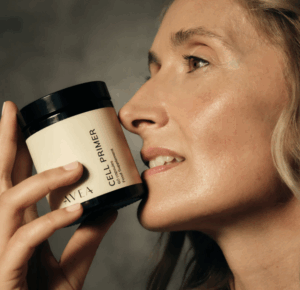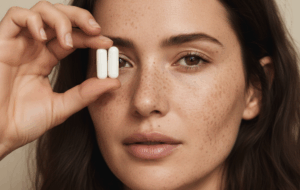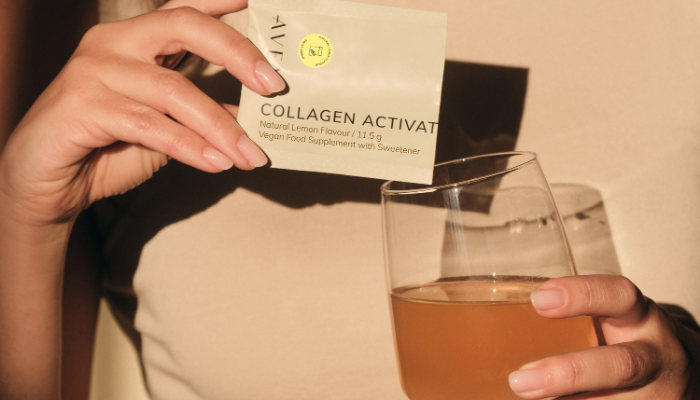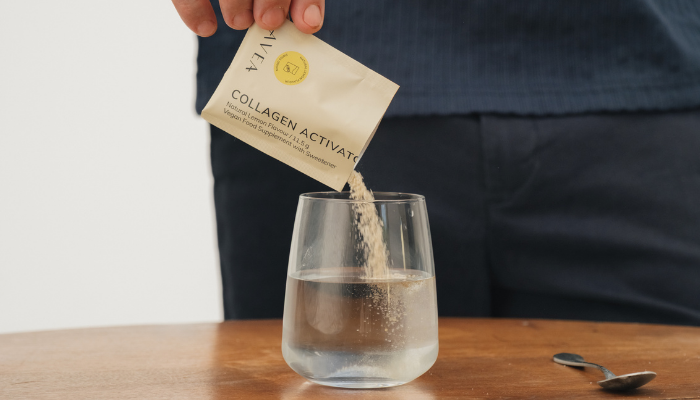You’ve likely encountered countless beauty products touting the wonders of Vitamin C. From fancy rejuvenating serums, to invigorating facial cleansers, or even anti-ageing supplements.
Perhaps you’ve even seen your favourite celebrities singing its praises. Now, you’re asking the all-important question: Is Vitamin C actually good for the skin? Look no further, Avea has got you covered!

This article provides a clear summary on how Vitamin C is more than just a common cold symptoms’ fighter. Delve into the science behind its skin-boosting claims, so you manage to get a solution that is worth your money and time.
In this article
Free guide to reverse your biological age

- Master the science of rejuvenation.
- Apply proven tips to turn back the clock.
- Transform your health with top longevity specialists.
Vitamin C– a powerful antioxidant
At the cellular level, Vitamin C is a potent antioxidant, combating damaging free radicals generated by environmental stressors, such as
- ultraviolet (UV) rays
- cigarette smoke
- venomous molecules
- emotional stress
- dietary deficiencies
- hormonal differences
- pollution
- infections
Free radicals are the bad boys that wreak havoc on your skin cells, accelerating ageing and further contributing to inflammation. They basically need to steal an electron from any nearby molecule to become stable. Free radicals destroy proteins, lipids, carbohydrates, and even DNA.
Vitamin C work as free radicals scavengers, neutralising these volatile molecules. They protect your skin, diminishing the signs of premature ageing, including uneven skin tone and dullness. But what makes Vitamin C such a unique and powerful molecule?

Vitamin C contributes to normal collagen formation, and the protection of cells from oxidative stress.
What exactly is Vitamin C?
Vitamin C, also known as ascorbic acid, is a water-soluble vitamin. It’s an essential nutrient, meaning your body cannot produce it on its own; it must be obtained through dietary sources or supplements.
Common signs of Vitamin C deficiency:
- Persistent fatigue and malaise
- Muscle weakness
- Joint and muscle aches
- Bruising easily
- Dry rough skin
- Poor wound healing
- Frequent infections
- Anaemia
- Gum problems
- Mood swings and depression
- Weight control issues
- Scurvy
Vitamin C can be found in fruits and vegetables, particularly citrus fruits like oranges and lemons, as well as bell peppers, strawberries, and spinach. Given its water-soluble nature, Vitamin C is not stored in significant amounts in the body. It needs to be regularly consumed for optimal health benefits.
Maintaining consistent levels can lead to a host of health benefits:
How is Vitamin C good for the skin?
Vitamin C helps with collagen synthesis
Collagen is a structural component that maintains your skin’s structure and elasticity. Vitamin C promotes the synthesis of collagen, revitalising the skin and maintaining its youthful glow.
Higher collagen levels mean plumper skin cells, which can reflect light better, making your skin look luminous. Studies have consistently demonstrated its ability to improve skin’s mechanical properties, making it firmer and more elastic.
Vitamin C helps with brightening and evening skin tone
Anyone familiar with hyperpigmentation? Vitamin C can come to the rescue here as well. This nutrient is known for its skin-lightening properties, targeting areas of uneven skin tone, brown spots, and discolouration.
Vitamin C helps to regulate melanin production, the primary pigment that influences skin colour. By inhibiting an enzyme essential for melanin formation, Vitamin C can lessen dark spots and hyperpigmentation, resulting in a visibly brighter and more balanced skin tone.
Vitamin C helps with wound healing
Believe it or not, Vitamin C plays a vital role in accelerating wound healing. Whether it’s minor cuts or acne scars, this nutrient assists in the body’s natural regeneration process, replacing damaged skin with fresh, new cells.
Vitamin C further promotes the natural exfoliation process of your skin with its anti-inflammatory properties. If you’re dealing with redness or inflamed spots, Vitamin C can help to strengthen the blood vessels beneath your skin, thereby reducing redness.
Cutting-edge solution: Collagen Activator
So, if you’re convinced of the benefits of Vitamin C and collagen for achieving radiant and resilient skin, the Avea Collagen Activator deserves your attention. The synergistic effects of Vitamin C combined with other ingredients enhance the benefits of skin care.
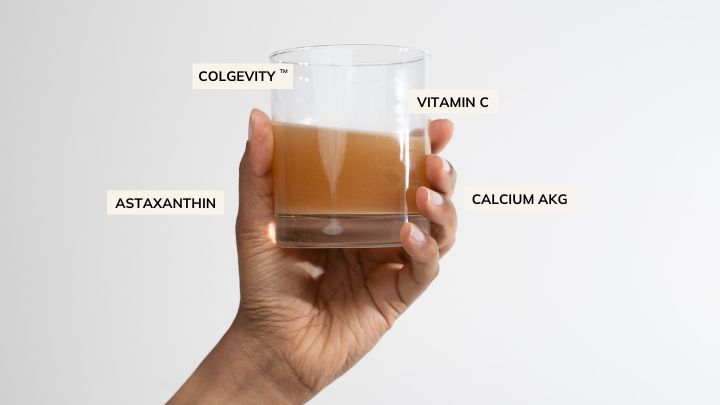
Developed in collaboration with experts from ETH Zurich University, this cutting-edge supplement is carefully designed to provide benefits above and beyond collagen production.
Over 70% of participants in our customer study experienced noticeable benefits within just one month—think hydrated, firmer, and smoother skin, not to mention stronger hair and nails.
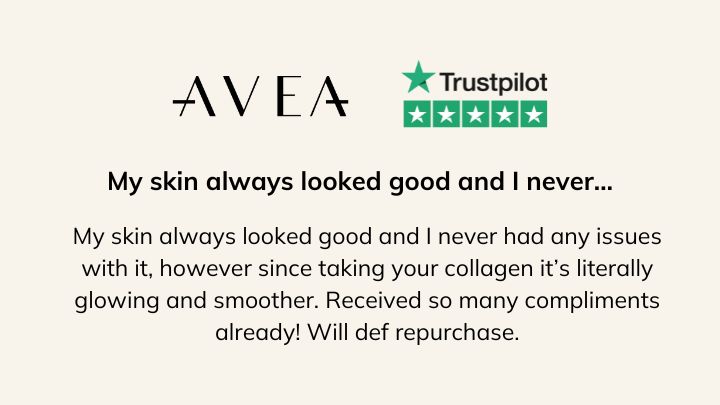
Is Vitamin C for everyone?
Excess Vitamin C is usually excreted through urine, making it relatively low-risk for toxicity compared to fat-soluble vitamins like Vitamin A, D, E, and K. When starting a new skincare routine involving Vitamin C, consult with a professional first, especially if you have highly sensitive skin.
Key takeaway
Vitamin C is more than deserving of its esteemed place in the skincare world. If you’re in pursuit of radiant, youthful skin, incorporating this nutrient into your skincare regimen is a science-backed strategy worth considering.
So, is Vitamin C good for the skin? The scientific community resoundingly says, “Yes!” Start giving your skin the nutritional boost it deserves.


